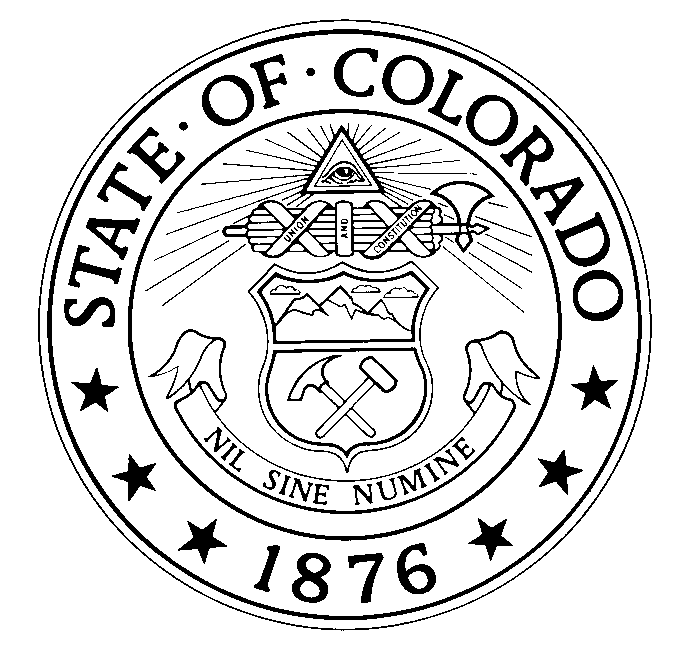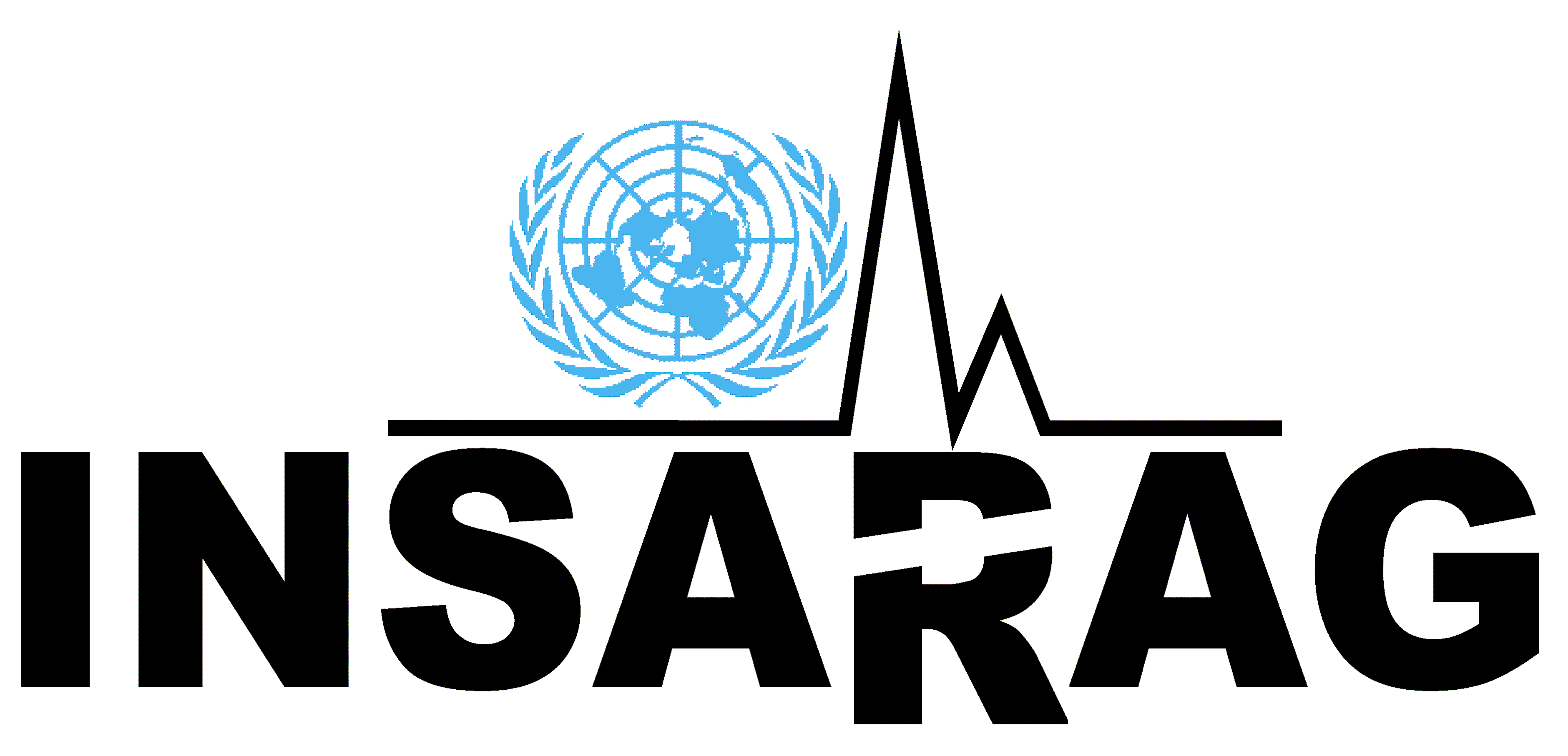COLORADO DEPARTMENT OF LABOR AND EMPLOYMENT DIVISION OF OIL
COLORADO FRONT RANGE TRAIL STANDARD TRAIL SIGNAGE(9 CCR 25039) 3900 COLORADO CHILD CARE ASSISTANCE PROGRAM
5 PHYSICS FOR EVERYONE HTTPWWWCOLORADOCOLLEGEEDUDEPTPCREPRESENTATIVEPHYHOMEHTM KINEMATICS ANSWERS AUGUST 1
ADOPTED DECEMBER 10 2009 COLORADO ACADEMIC STANDARDS SCIENCE “SCIENCE
ALAMOSA AREA COLORADO PRINT DATE 04192004 TABLE ENG1CONSTRUCTION MATERIALS
ALAMOSA AREA COLORADO PRINT DATE 04192004 TABLE GRECREATIONAL DEVELOPMENT
|
COLORADO DEPARTMENT OF LABOR AND EMPLOYMENT
DIVISION OF OIL AND PUBLIC SAFETY
RETAIL HYDROGEN FUELING REGULATIONS
7 CCR 1101-17
Effective: January 1, 2017
|

TABLE OF CONTENTS
ARTICLE 1 GENERAL PROVISIONS 3
Section 1-1 Basis and Purpose 3
Section 1-2 Technical Rationale 3
Section 1-3 Statutory Authority 3
Section 1-5 Codes and Standards incorporated by reference 3
Section 1-8 Condemning a Hydrogen Container Assembly and Piping System 5
ARTICLE 2 INSTALLATION AND REGISTRATION 6
Section 2-1 General Requirements 6
Section 2-2 Installation Permits 6
Section 2-3 Annual Registration 7
Section 2-4 Access Requirements 7
ARTICLE 3 DISPENSING AND FUEL QUALITY 8
Section 3-1 Retail Dispensing of Hydrogen 8
Section 3-2 Retail Motor Fuel Dispensers Inspection and Testing 8
Section 3-3 Retail Motor Fuel Dispensers for Hydrogen 8
Section 3-4 Street Sign Prices and Advertisements 9
ARTICLE 4 DELIVERY INTO RETAIL HYDROGEN SYSTEMS 10
ARTICLE 5 ACCIDENT REPORTS AND INVESTIGATIONS 11
ARTICLE 1 GENERAL PROVISIONS
Section 1-1 Basis and Purpose
The basis and purpose of these regulations is to set forth minimum standards for the design, construction, location, installation and operation of retail hydrogen fueling facilities, which are reasonably necessary for the protection of the health, welfare and safety of the public and persons using such materials.
Section 1-2 Technical Rationale
The technical requirements of these regulations are based on generally-accepted national and international codes and standards governing the minimum levels of acceptability for inspections, specifications, shipment notification, record keeping, labeling of containers, use of meters or mechanical devices for measurement, submittal of installation plans and minimum standards for the design, construction, location, installation and operation of retail hydrogen systems.
Section 1-3 Statutory Authority
These regulations are created pursuant to 8-20-102 of the Colorado Revised Statutes.
Section 1-4 Effective Date
These regulations shall be effective on January 1, 2017.
Section 1-5 Codes and Standards incorporated by reference
The following codes are incorporated by reference.
(a) NFPA 2, Hydrogen Technologies Code, 2016 edition.
(b) NFPA 55, Compressed Gases and Cryogenic Fluids Code, 2016 edition.
(c) NFPA 30-A, Code for Motor Fuel Dispensing Facilities & Repair Garages , 2012 edition.(d) NIST Handbook 44 Specifications, Tolerances, and Other Technical Requirements for Weighing and Measuring Devices, 2016 edition.
(e) NIST Handbook 130, Uniform Laws and Regulations in the Areas of Legal Metrology and Engine Fuel Quality, 2016 edition.
(f) SAE J 2601, Fueling Protocols for Light Duty Gaseous Hydrogen Surface Vehicles, 2014 edition.
(g) SAE J 2719, Hydrogen Fuel Quality for Fuel Cell Vehicles, 2015 edition.
Section 1-5-2 Inspection of incorporated codes
Interested parties may inspect the referenced incorporated materials by contacting the Division at 633 17th Street, Suite 500, Denver, CO 80202.
Section 1-5-3 Later amendments not included
These regulations do not include later amendments to or editions of the incorporated material.
Section 1-6 Definitions
Terms in these regulations shall have the same meaning as those found in Title 8, Article 20 of the Colorado Revised Statutes. In addition, unless the context otherwise requires:
ASME – Means the American Society of Mechanical Engineers (ASME).
ASTM International – Formerly the American Society for Testing and Materials (ASTM).
California Type Evaluation Program (CTEP) - Means the evaluation program administered by the California Department of Food and Agriculture, Division of Measurement Standards.
Condemned – Means a condemned container assembly and piping system which is determined by a state inspector to be so unsafe that further use is prohibited until it is satisfactorily repaired or replaced.
Container Assembly – Includes ASME containers, commonly known as tanks or cylinders.
CRS – Means the Colorado Revised Statutes.
Delivery – Means delivery of hydrogen to a hydrogen fueling facility by means of truck transport or connected pipeline.
Division – Means the Division of Oil and Public Safety, which is the regulatory agency of the Colorado Department of Labor and Employment having jurisdiction over retail natural gas systems per the provisions of CRS 8-20-102 (3).
Existing Installation – Includes any hydrogen container assembly and piping system at a retail hydrogen fueling facility that has been placed into service prior to the effective date of these regulations or has received its initial inspection by a state inspector.
Hydrogen Fuel – A fuel composed of molecular hydrogen intended for use in motor vehicles.
Hydrogen Fueling Facility – Means a facility that has a hydrogen fueling system which is used for motor vehicle fueling.
Hydrogen Fueling System – Means a hydrogen storage container assembly, associated piping and dispenser(s) which is used for motor vehicle fueling.
Incident – Means a reportable accident, as defined by this regulation.
National Board – Means the National Board of Boiler and Pressure Vessel Inspectors.
National Type Evaluation Program (NTEP) - Means the evaluation program administered by the National Conference on Weights and Measures.
New Installation – Means any hydrogen container assembly, associated piping or dispenser(s) at a hydrogen fueling facility that has been placed into service after the effective date of these regulations or has not received its initial inspection by a state inspector.
NFPA – Means the National Fire Protection Association.
NIST– Means the National Institute of Standards and Technology.
Piping System – Means pipes, tubing, hose and flexible connectors with valves and fittings made into complete systems for conveying hydrogen from one point to another within a retail hydrogen fueling facility.
Proved – Means the act of having verified the accuracy of meters used to measure fuel and petroleum products using a prover.
Prover – Means a calibrated volumetric receiver or mechanical device traceable to NIST standards.
Registered Serviceperson – Means any individual who for hire, award, commission or any other payment of any kind installs, services, repairs or reconditions a commercial weighing or measuring device and who voluntarily registers with the Division.
Registered Service Agency (RSA) – Means any agency, firm, company or corporation that for hire, award, commission or any other payment of any kind installs, services, repairs or reconditions a commercial weighing or measuring device and that voluntarily registers with the Division. Under agency registration, identification of individual servicepersons shall be required.
Retail – Means the sale of hydrogen at a hydrogen fueling facility, in small or individual quantities for use as a motor fuel by the purchaser.
State Inspector – Means a person who is employed or authorized by the Division to perform inspections of retail hydrogen fueling facilities.
Section 1-7 Applicability
The regulations contained herein shall apply to the installation and operation of all retail hydrogen fueling facilities.
Section 1-8 Condemning a Hydrogen Container Assembly and Piping System
(a) Conditions which a state inspector may determine to be unsafe include: bypassed safety controls, inoperative relief valves, any leak from a hydrogen fueling system, missing nameplate or markings, or any other condition deemed by a state inspector to be unsafe based on codes incorporated by this regulation. A hydrogen fueling system that meets any condition described above may be condemned by a state inspector.
(b) The owner or user must shut down the condemned hydrogen fueling system as directed by a state inspector. If neither the owner nor user is available, a state inspector will take necessary means to have the system safely shut down.
(c) A state inspector will affix a notice to a condemned hydrogen fueling system stating that it has been condemned and may not be used until satisfactory repairs are made, as determined by a re-inspection by a state inspector or other person authorized by the Division.
ARTICLE 2 INSTALLATION AND REGISTRATION
No person may install, or cause to be installed, a new retail hydrogen fueling facility until:
(a) An application, as described in Section 2-2 has been approved by the Division and an installation permit has been issued by the Division;
(b) The installation plan has been reported to the local Fire Department having jurisdiction; and
(c) The application and inspection fee described in Section 2-2(a)(3) has been paid.
Section 2-1 General Requirements
(a) All new retail hydrogen fueling facilities shall be operated and maintained in accordance with the codes incorporated by this regulation, including any retroactive requirements adopted by the Division at the time of installation.
(b) All existing retail hydrogen fueling facilities shall be operated and maintained in accordance with the edition of the incorporated codes that were in effect at the time of original construction.
(1) If after inspection the Division determines that an existing situation presents an unacceptable degree of risk, the Division shall be permitted to apply retroactively any portion of the incorporated codes as deemed appropriate.
(c) Local Authorities Having Jurisdiction, including Fire Departments and building code officials, may adopt and enforce more stringent requirements than the minimum standards in these regulations. These requirements may include, but are not limited to, the following:
(1) Plan review and permitting for new hydrogen fueling facilities.
(2) Access to hydrogen fueling facilities for the purpose of conducting inspections.
(3) Delivery into containers located at hydrogen fueling facilities.
Section 2-2 Installation Permits
(a) Plans for all new retail hydrogen fueling facilities shall be submitted to and approved by the Division before construction of such facility begins.
(1) Plans for the installation of new container assembly, associated piping or dispenser(s) at existing retail hydrogen fueling facilities shall be submitted to the Division for approval before construction of such installation begins.
(2) Plans for change of service of existing hydrogen fueling facilities from non-retail to retail service shall be submitted to the Division for approval before any such change of service occurs.
(3) For each installation plan submitted, the owner/operator must remit a fee of one thousand dollars ($1,000) to the Division to cover the costs of the site plan review and installation inspection.
(4) It is not necessary to submit plans for the repair or replacement of existing equipment at a permitted facility.
(b) The permit procedures are as follows.
(1) The permit application shall be submitted using an application form provided by the Division.
(2) The application shall include a plot plan containing all elements required by the Division.
(3) The Division may deny the permit application if the proposed installation does not conform to the requirements of the Colorado Revised Statutes, this regulation or any of the codes incorporated by reference, or if the application is determined to be incomplete or inaccurate.
(4) Construction and installation of all associated equipment shall conform to the incorporated codes in effect at the time of installation.
(5) The Division may revoke a permit if construction is not performed per the approved permit or if the construction fails to meet operating or fire safety regulations established by the Division or by the applicable incorporated codes.
(6) An installation permit approved by the Division is automatically revoked if construction does not begin within 6 months of approval unless a written request for an extension is submitted to and approved by the Division.
Section 2-3 Annual Registration
(a) Each owner/operator of a retail hydrogen fueling facility must register their facility with the Division within 30 calendar days after the first day on which the facility begins storing hydrogen fuel. This registration must be made on a form provided by the Division.
(b) Each owner/operator of a retail hydrogen fueling facility shall renew their registration annually, on or before the calendar date of the initial registration.
(c) Each owner/operator of a retail hydrogen fueling facility shall pay a registration fee of $1,000 per facility per year as authorized by CRS 8-20-102.
Section 2-4 Access Requirements
(a) The Division may inspect a retail hydrogen fueling facility at any time during its construction. Access shall be provided to the Division or its agent for such purpose upon request.
(b) The Division may inspect a retail hydrogen fueling facility upon completion to verify compliance with design, construction, location, installation and operation, dispensing and fuel quality requirements in these regulations. Retail hydrogen fueling facility owners, hydrogen fueling system owners and owners of locations where a retail hydrogen fueling system is installed shall grant inspection access to the Division or its agent for such purpose upon request.
ARTICLE 3 DISPENSING AND FUEL QUALITY
Section 3-1 Retail Dispensing of Hydrogen
All retail dispensers of hydrogen used as a motor vehicle fuel shall be operated and maintained in accordance with the applicable requirements of the codes incorporated by this regulation.
All retail dispensing of hydrogen into motor vehicles shall be in conformance with SAE J2601, “Fueling Protocols for Light Duty Gaseous Hydrogen Surface Vehicles.”
Section 3-2 Retail Motor Fuel Dispensers Inspection and Testing
(a) All retail motor fuel dispensers (RMFDs) shall be suitable for their intended use, properly installed, accurate and maintained in that condition by their owner/operator.
(b) All RMFDs shall have an active certificate of conformance (CC) from either the National Type Evaluation Program (NTEP) or the California Type Evaluation Program (CTEP) prior to installation or use for commercial purposes.
(c) All RMFDs shall be capable of displaying delivered quantity in units of mass and all adjustments and calibrations of RMFDs shall be made utilizing mass measurement standards.
(d) The Division shall be notified when any new or remanufactured RMFD is placed in service at a new or existing installation.
(1) Notification shall be submitted using a placed in service report provided by the Division.
(e) No owner/operator of any RMFD shall use the RMFD for the measurement of hydrogen unless it has been proved in a manner acceptable to the Division and sealed as correct by a state inspector or registered service agency (RSA).
(1) All RMFDs shall be proved and sealed as correct on an annual basis by either a state inspector or RSA.
(f) Means shall be provided at the hydrogen fueling facility to return all hydrogen product used for proving meters back to the storage equipment or the facility’s hydrogen vent system when proving is completed.
(g) If any RMFD fails to comply with any of the provisions of this regulation, a state inspector shall seal it in such a manner as to prohibit its use and it shall remain sealed until it complies with all of the provisions of this regulation.
(1) When an RMFD is brought back into compliance with this regulation, it must be placed back in service by a state inspector or RSA.
(h) All RMFDs shall comply with the minimum standards as prescribed by the applicable sections of the codes incorporated by this regulation except as modified or rejected by this regulation or by the Division.
Section 3-3 Retail Motor Fuel Dispensers for Hydrogen
(a) The symbol for hydrogen vehicle fuel shall be the capital letter “H” (the word “Hydrogen” may also be used).
(b) Each RMFD of hydrogen shall be labeled with the product identity shown in a conspicuous location on the dispenser, using the symbol for hydrogen vehicle fuel (the capital letter “H” or the word “Hydrogen”).
(c) Hydrogen shall be labeled in accordance with 16 CFR 309, “FTC Labeling Alternative Fuels.”
(d) NFPA labeling requirements also apply; refer to NFPA 2.
(e) All Hydrogen kept, offered or available for sale or sold at retail as a vehicle fuel shall be in units of mass (kilograms).
(f) A computing dispenser must display the unit price in whole cents on the basis of price per kilogram (e.g., $3.49 per kg, not $3.499 per kg).
(g)
The service pressure(s) of the dispenser must be conspicuously shown
on the user interface bar or the
SI unit of pascal (Pa) (e.g.,
MPa).
Section 3-4 Street Sign Prices and Advertisements
(a) The unit price must be in terms of price per kilogram in whole cents (e.g., $3.49 per kg, not $3.499 per kg).
(b) The sign or advertisement must include the service pressure (expressed in megapascals) at which the dispenser(s) delivers hydrogen fuel (e.g., H35 or H70).
Section 3-5 Product Quality
(a) Hydrogen Fuel shall meet the latest version of SAE J2719, “Hydrogen Fuel Quality for Fuel Cell Vehicles.”
(b) All equipment, including filters and strainers, used to prevent any foreign material, including compressor oil or water, from being dispensed into a motor vehicle shall be periodically serviced and maintained.
(c) Any shipper of hydrogen fuel products to be used for retail motor fuel who ships such product into the state of Colorado or ships hydrogen fuel products from one point within the state to another point within the state shall make records of such shipments available to the Division upon request.
ARTICLE 4 DELIVERY INTO RETAIL HYDROGEN SYSTEMS
No owner/operator of a retail hydrogen fueling facility shall allow hydrogen to be delivered into the following:
(a) An improperly-installed container assembly or piping system installed at a hydrogen fueling facility.
(b) A container installed at a hydrogen fueling facility that does not have a proper ASME nameplate.
ARTICLE 5 ACCIDENT REPORTS AND INVESTIGATIONS
Section 5-1 Reportable Accidents
(a) Accidents, fires, explosions, injuries, damage to property or loss of life resulting from the storage or dispensing of hydrogen at retail hydrogen fueling facilities shall be reported to the Division within 24 hours after their occurrence.
(b) Subsection (a) of this Section includes accidents resulting from the improper use or installation of compression, storage and dispensing equipment or equipment failure at retail hydrogen fueling facilities.
(1) The Division may investigate such occurrences and shall maintain a written record of findings, which shall be available for public examination.
Section 5-2 Reporting Requirements
(a) The owner/operator or other representative of the retail hydrogen fueling facility is required to notify the Division of an accident that meets any of the criteria of Section 5-1.
(b) Accidents may be reported by telephone (303-318-8547), or email ([email protected]).
(c) The accident report shall include, at minimum, the following information:
(1) The names of the owner/operator and person making the report and their telephone numbers.
(2) The date, time and location of the accident.
(3) The number of fatalities and personal injuries.
(4) All other significant facts known by the person making the report that are relevant to the cause of the accident or extent of the damages.
APPORTIONMENT OF COLORADO SALES AND USE TAX ON COMPUTER
BELOW SPACE FOR OFFICE USE ONLY COLORADO SECRETARY OF
C CORPORATION NET OPERATING LOSS 3922504(2) 1) THE COLORADO
Tags: colorado department, of colorado, employment, labor, department, division, colorado
- 16 S YGN AKT III AUA 48207 W
- 17 | PAGE PRETENDIMI I RREGULLIMIT SHKRUAJTI ABDUL KERIM
- IN ZWEIFACHER AUSFERTIGUNG EINZUREICHEN HHST HJ 20 ) ÜBERSICHTNR
- STANDING ORDER TO THE MANAGER DATE
- 3 FORMBLATT D3 ANTRAG AUF ZULASSUNG EINER
- COMUNICADO Nº 10CD2010 “SOBRE LA CREACION DE JUSDEM” LA
- THE FUTURE OF CONSUMER LAW – THE PERSPECTIVE FROM
- RESEARCH PASSPORT APPLICATION FORM – VERSION 51 08JUL2020 PLEASE
- FACULTAD DE CIENCIAS DE LA EDUCACIÓN PREMIO A LA
- 1RIQUEZA AMBIENTAL ESPACIOS NATURALES LUGAR DE INTERÉS COMUNITARIO
- SYTUACJA EPIDEMIOLOGICZNA GRYPY NA TERENIE MIASTA KRAKOWA W I
- S BODØ KOMMUNE BOLIGKONTORET POSTBOKS 319
- LOGO AUTRE FINANCEUR FORMULAIRE DE DEMANDE DE PAIEMENT DU
- FIRST NAME FAMILY NAME …………………………………………………………………… DATE OF BIRTH ………………………
- ANALISIS PERBEDAAN TARIF RUMAH SAKIT DAN TARIF INACBG’S PELAYANAN
- MARRAKECH PROCESS ON SUSTAINABLE CONSUMPTION AND PRODUCTION TASK FORCE
- MEMÒRIA DE L’ACTIVITAT PROMOGUDA PEL CLUB ANY DADES DE
- VEILEDER FOR KOMMUNALE TILSYNSMYNDIGHETER SOM UTFØRER TILSYN MED ASYLMOTTAK
- CCSAPAH8 PREPARE FOR POTENTIAL DISASTERS O VERVIEW PART OF
- LA TELEVISIÓN DEL FUTURO LA EXCITACIÓN SE ASOMÓ AL
- PROGRAMA DE FORMACIÓN EN INTEGRACIÓN ANDINA PARA FUNCIONARIOS JÓVENES
- TEACHER BACKGROUND UNIT 2 OCEAN CURRENTS AND THE
- WYKŁADY – SEMESTR I POJĘCIE POSTĘPOWANIA CYWILNEGO ŹRÓDŁA PRAWA
- THE MILWAUKEE INVENTORY FOR THE DIMENSIONS OF ADULT SKIN
- MODERN SLAVERY AND HUMAN TRAFFICKING STATEMENT MODERN SLAVERY ACT
- LA AUTONOMÍA DE LA CIUDAD DE BUENOS AIRES LOGROS
- P OLITICA DE PARTICIPACION DE PADRES DE CORA KELLY
- EDUCATION FOR SUSTAINABILITY MATRIX LEVEL 2 LEVEL 3
- SYLABUS NA ROK AKADEMICKI 20202021 CYKL KSZTAŁCENIA 2019202020232024 OPIS
- COMUNICACIÓN INCIDENCIAS 10002 PÁGINA 1 DE 1 NOMBRE EMPRESA
EDICIÓN DEDICADO A LAS ACTAS DEL XV CONGRESO NACIONAL
 PERATURAN PRESIDEN REPUBLIK INDONESIA NOMOR 63 TAHUN 2005 TENTANG
PERATURAN PRESIDEN REPUBLIK INDONESIA NOMOR 63 TAHUN 2005 TENTANGVorträge der Sektion Linguistik (vonmelle Park 6 Phil 1150)
THE ECONOMIST AS DETECTIVE FROM MICHAEL SZENBERG ED PASSION
 PREVOLE 32 8362 HINJE TELEFON 07
PREVOLE 32 8362 HINJE TELEFON 07 EUPHA NEWSLETTER 4 2008 PUBLISHED APRIL 2008 IN
EUPHA NEWSLETTER 4 2008 PUBLISHED APRIL 2008 INCHINESE GOVERNMENT SCHOLARSHIPSTUDENT EXCHANGES PROGRAM NANJING UNIVERSITY OF INFORMATION
 TABLE OF CONTENTS ABUSE ASSISTANCE 2 CHEMICAL DEPENDENCY
TABLE OF CONTENTS ABUSE ASSISTANCE 2 CHEMICAL DEPENDENCYNN 6409 362009 MINISTARSTVO POLJOPRIVREDE RIBARSTVA I RURALNOG RAZVOJA
 MEETING OF THE AFRICAEUROPE GENEVA 2728 APRIL 2005
MEETING OF THE AFRICAEUROPE GENEVA 2728 APRIL 2005 SORU1AŞAĞIDAKILERDEN HANGISI TOPRAĞI INCELEYEN BILIM DALIDIR? A)JEOLOJI B)LIMNOLOJI C)PEDOLOJI
 VRAGENLIJST BIJ HET URINE ONDERZOEK VANG BIJ VOORKEUR DE
VRAGENLIJST BIJ HET URINE ONDERZOEK VANG BIJ VOORKEUR DEDIRECTED REHEARSAL DESCRIPTION DIRECTED REHEARSAL IS A PROCEDURE THAT
 SREDNJA EKONOMSKA ŠOLA LJUBLJANA ROŠKA C 2 1000 LJUBLJANA
SREDNJA EKONOMSKA ŠOLA LJUBLJANA ROŠKA C 2 1000 LJUBLJANANA TEMELJU ČLANKA 18 STAVKA 2 ZAKONA O HRVATSKOJ
NATIONAL INCIDENT MANAGEMENT SYSTEMS CERTIFICATE COURSE SYLLABUS PURPOSE THE
 DIRECCIÓN DE RELACIONES INSTITUCIONALES Y DESARROLLO FEDERAL ORGANIGRAMA TAREAS
DIRECCIÓN DE RELACIONES INSTITUCIONALES Y DESARROLLO FEDERAL ORGANIGRAMA TAREASWSZECHNICA POLSKA SZKOŁA WYŻSZA W WARSZAWIE KIERUNEK …………………………………………………………… SPECJALNOŚĆ
7 (ENTIRILLADO ELECTRÓNICO) ESTADO LIBRE ASOCIADO DE PUERTO RICO
 ORIENTACIÓN PEDAGÓGICA ESCRITURA LIBRE CONCEPTO LA ESCRITURA LIBRE PRETENDE
ORIENTACIÓN PEDAGÓGICA ESCRITURA LIBRE CONCEPTO LA ESCRITURA LIBRE PRETENDE